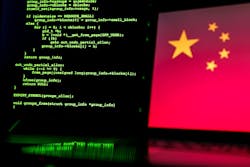Bipartisan House Letter Presses Telcos Following Salt Typhoon Cyberattack
While the NSA is investigating the China-linked Salt Typhoon hack on U.S. internet service providers, a bipartisan group of lawmakers in Washington are calling out the leadership of the three affected telcos, according to a press release.
Members of the House Energy and Commerce Committee, including Chair Cathy McMorris Rodgers (R-WA), Frank Pallone, Jr. (D-NJ), as well as Communications and Technology Subcommittee Chair Bob Latta (R-OH) and member Doris Matsui (D-CA), penned a letter to the telcos affected by the breach, AT&T, Verizon, and Lumen, looking for answers, as well as a briefing, on what happened.
“We are concerned by the recent reports of a massive breach of AT&T, Verizon, and Lumen’s communications networks by Chinese hackers," said the letter. "These types of breaches are increasing in frequency and severity, and there is a growing concern regarding the cybersecurity vulnerabilities embedded in U.S. telecommunications networks. The Committee needs to understand better how this incident occurred and what steps your company is taking to prevent future service disruptions and secure your customers’ data.”
The hackers reportedly had successfully breached parts of AT&T, Verizon, and Lumen’s network infrastructure used to respond to government wiretap requests in an attempt to gain information.
During the months long hack, which the Wall Street Journal called a potentially catastrophic breach, the hackers may have also had access enabling them to spy on portions of generic internet traffic.
